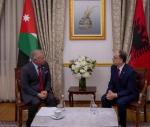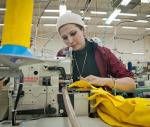You are here
Soul searching in South Korea
Mar 18,2017 - Last updated at Mar 18,2017
The impeachment, and removal from office, of South Korean president Park Geun-hye on charges of corruption and abuse of power has rocked the country’s political establishment and divided the electorate.
Not since the Asian financial crisis of 1997, rooted partly in the flawed economic policies of Park’s father, Park Chung-hee, have South Koreans faced such an impasse.
It is still too early to know who will succeed her in the Blue House (the presidential seat); a special election has been called for May 9. But this much is clear: with Park’s unceremonious departure, a change in South Korea’s ruling party is all but assured.
And with new blood must come renewed vigour to tackle governance problems — from dirty money in politics to incoherent foreign policy — that have plagued South Korea for far too long.
South Korea’s current political crisis began in October 2016, when allegations emerged that Park had pressured the chaebols — the country’s giant family-owned conglomerates — to funnel huge sums of money into two foundations controlled by her close personal friend, Choi Soon-sil.
Word of Park’s cronyism left many South Koreans feeling betrayed by a president who had vowed to lead differently.
Park, whose authoritarian style resembled that of her father, routinely disregarded basic norms of liberal democracy.
She scoffed at the rule of law and separation of government powers.
After being accused of corruption, she simply ignored calls to appear before the constitutional court to testify.
Prosecutors have issued another summons for her to appear in court on March 21; it is still unclear if she will, even though she has now lost her immunity from prosecution.
Park’s removal from office almost certainly means that political power will shift from the formerly Saenuri, or “New Frontier” (now the Liberty Korea) Party to opposition forces.
At the moment, candidates from the centre-left Democratic Party of Korea are leading in an effort to end nine years of conservative rule.
Moon Jae-in, a former Democratic Party of Korea leader and the runner-up to Park in 2012, is the opposition’s frontrunner by a wide margin.
Whoever becomes South Korea’s next president will be greeted by profound political, economic and foreign policy challenges.
On the domestic front, the president will inherit a political system in need of significant reform.
Aside from calls to solidify the separation of powers by establishing a more robust system of legal checks and balances, there is near-consensus on the need to overhaul the current five-year, single-term presidency.
Established in 1987 during South Korea’s transition to democracy, the short timeframe hampers the incumbent’s ability to devise, implement, and sustain long-term policies.
Park, like many of her predecessors, pushed to change the term limits, but her efforts were stymied by bad timing.
These and other changes will require democratic leadership, based on active communication with various segments of society.
South Koreans are hopeful in this regard, believing that anyone will be better than Park. (According to one opinion poll, her approval rating before leaving office was a dismal 4 per cent.
The next president’s biggest economic challenge will be to untangle the ties between politicians and chaebol owners.
At the moment, the chaebols’ proximity to political power reduces the transparency of corporate governance, discourages competition and weakens the innovative potential of small- and medium-size enterprises.
The arrest in February of the Samsung heir Lee Jae-yong, on bribery charges, indicates the scope of the problem.
With all major presidential candidates emphasising the importance of fixing the chaebol problem, changes on this front are possible.
Finally, and perhaps most importantly, the next president will face a foreign-policy puzzle that perplexed Park for most of her tenure.
Her successor will need more diplomatic acumen to stabilise relations with Japan, China and Russia, while simultaneously working to denuclearise North Korea and thus reduce the threat Kim Jong-un’s regime poses to the region.
Here, the wildcard is US President Donald Trump, who is creating his own brand of uncertainty in Asia.
How Trump chooses to deal with North Korea, in particular, will be an early test for South Korea’s next leader.
If, as I suspect, the Trump administration turns to tightened sanctions (including secondary boycotts) and dialogue, leaders in Seoul will be able to adjust accordingly.
There will still be scope for agreement if political leaders on all sides are willing to listen.
The US’ deployment in South Korea of an advanced anti-missile system is a case in point.
While the move has angered China’s leaders, there remains room for compromise, especially if the system’s deployment is made temporary and linked to North Korea’s denuclearisation.
South Korea has experienced — and survived — political and economic upheaval before.
After all, it was Park’s own father who, in the 1960s and 1970s, helped build a system that did little to discourage the corrupting links between politicians and chaebols.
The weak financial institutions and shady corporate sector that grew from his legacy conspired to make the pain of the 1997 financial crisis even worse.
Then, as now, failure at the top prompted voters to demand a new direction.
Conservative leaders’ collective inability to insulate South Korea from the events of 1997 cleared the way for a liberal opposition leader, Kim Dae-jung, to assume the presidency in 1998.
South Korea is very likely on the cusp of another political housecleaning. But regardless of who arrives at the Blue House in May, their job — and the job of their party — will be to tackle the challenges that Park was so ill equipped to address.
The writer, former minister of foreign affairs of the Republic of Korea, is professor emeritus of international relations at Seoul National University. ©Project Syndicate, 2017. www.project-syndicate.org












